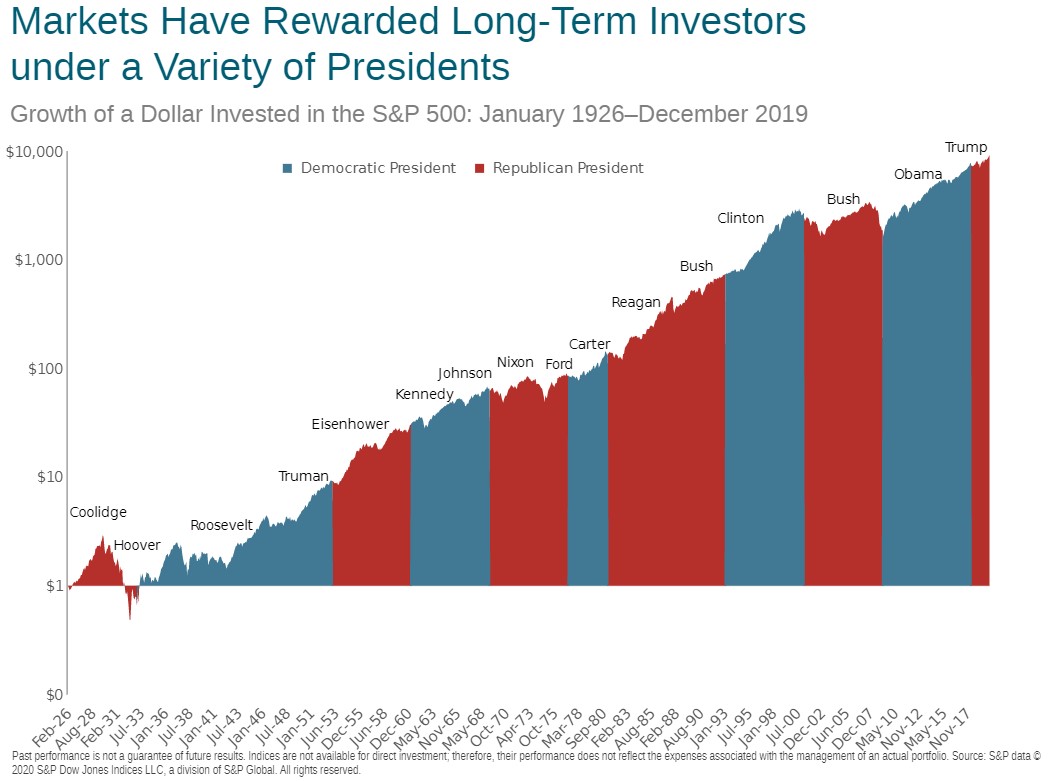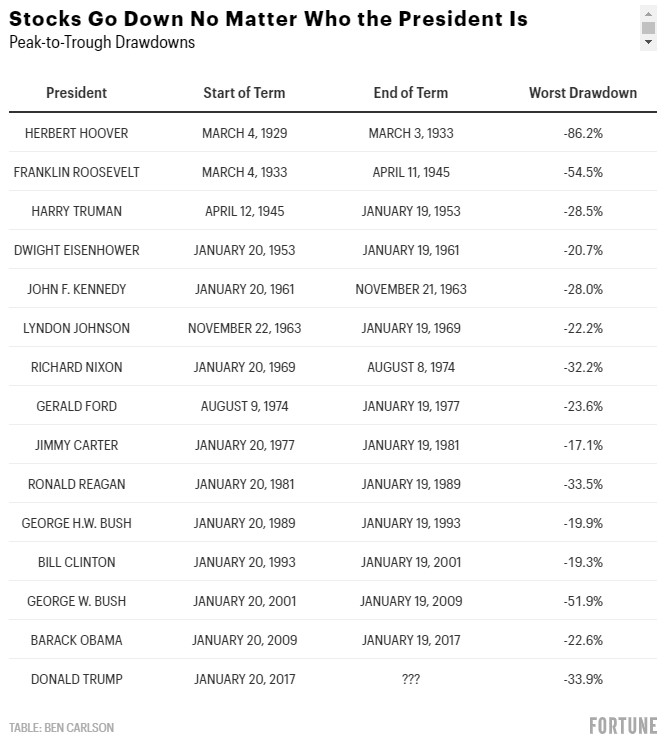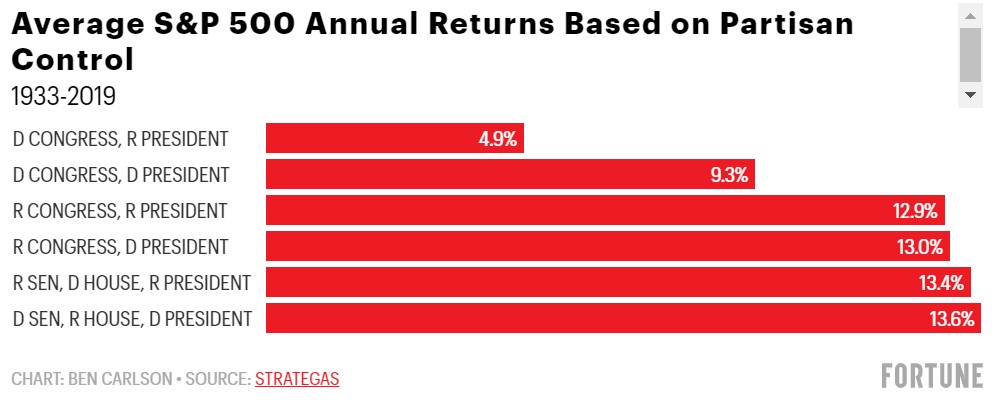With the presidential election just weeks away, you can expect to be inundated with predictions about how the winner will impact the markets and the economy.
It may be entertaining to guess how the outcome of the election will impact your wealth, but this becomes a futile exercise once you realize how much there is that we don’t know about what comes next. Not only do we not know who is going to win but also:
- We don’t know which policies they’re going to implement while in office.
- We don’t know how amenable the other party will be to those policies.
- We don’t know how the person in office will impact consumer spending and sentiment in the economy.
- We don’t know which sectors or industries will be the biggest winners and losers.
- We don’t know how investors will react or what they have already priced in regarding the outcome of the election.
When Trump got elected, there were pundits and investors galore predicting an enormous market crash. Instead, stocks rose steadily for most of his first term until the pandemic hit. There have been more than 130 new all-time highs on the S&P 500 during Trump’s tenure.
When Obama got elected, there were people predicting, “[His] Radicalism Is Killing the Dow.” Instead, stocks set off in 2009 on a bull market that lasted for the entirety of the next decade. There were nearly 130 new all-time highs on the S&P 500 during Obama’s tenure.
The long-term trend of the stock market has been up and to the right no matter who the President is:

And no President in modern history has been able to prevent the stock market from falling either:

Every President going back to Herbert Hoover has experienced down markets.
We also don’t know who will hold a majority in Congress coming out of the upcoming election. The promises candidates are making on the campaign trail right now won’t necessarily come to fruition if they don’t control Congress. The performance of stocks also varies depending on who controls what historically:

The truth is politicians have far less control over the stock market than most people would like to believe. Policy outcomes often show up on a lag and come with unintended consequences. As we’ve seen this year, the economy and the stock market are not always on the same page. It might give you an illusion of control to know your party holds the nation’s highest office, but no one person is bigger than the stock market.
In addition, much of the performance in the stock market under any administration depends on where we are in the cycle when they take office. Bill Clinton and Ronald Reagan both took office at opportune times during one of the biggest bull markets in history. On the other hand, Franklin D. Roosevelt’s time in office was bookended by the Great Depression and WWII, while George W. Bush took over just before 9/11 and ended his term during the Great Financial Crisis.
Regardless of who wins next month it’s important to keep politics out of your portfolio. Money decisions are already rife with emotions, biases, and blind spots. Bringing politics into this equation only amplifies those emotions and makes it nearly impossible to make rational clearheaded decisions.
If you’re thinking about selling all of your stocks based on the winner of the presidential election, be sure to ask yourself the following questions first:
- If I sell out of the market because of the President, does that mean I have to stay out of the market until a new President takes over?
- If I sell out of the market because of the President and the stock market moves higher will I buy back in or continue to sit on the sidelines?
- If I sell out of the market because of the President and the stock market crashes will I buy in at lower prices or continue to sit it out based on my political beliefs?
- If I sell out of the market because of the President and things don’t turn out as bad as I originally thought, how will I know I was wrong?
There are never any easy answers when it comes to handicapping the markets because no one knows what the future holds.
There are only two things I’m certain of when it comes to mixing politics with investing decisions: (1) The stock market will go up and down no matter who the President is, and (2) Investing your money based on how you vote in November will not result in levelheaded financial decisions.
This piece originally appeared at Fortune. Reprinted here with permission.
